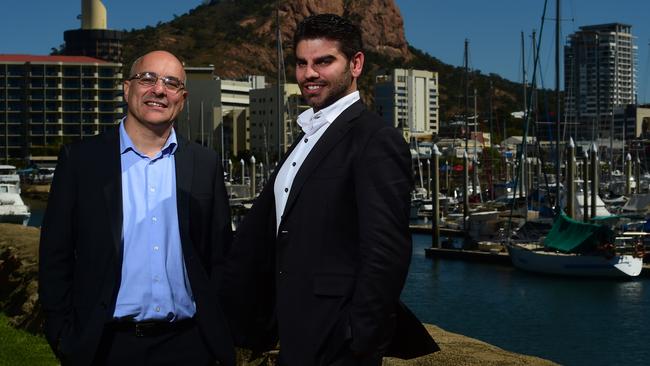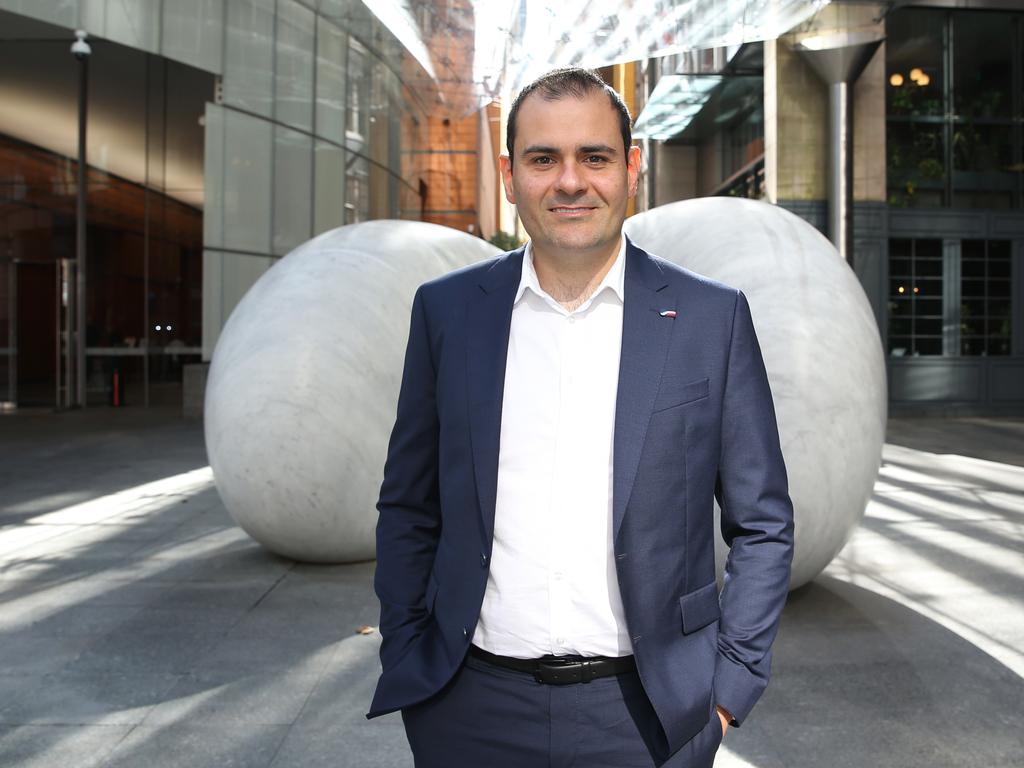Bill Moss’s men charge out of Magnis Energy battery maker Imperium3
Directors linked to ex-Macquarie executive Bill Moss and his Boston Global vehicle have quietly quit their positions in the firm building Magnis Energy’s Townsville batteries project.

Three directors linked to ex-Macquarie executive Bill Moss and his Boston Global vehicle have quietly quit their positions in the company building Magnis Energy’s major batteries project in Townsville.
Mr Moss, a long-time executive at the investment bank’s property business, has a 33 per cent stake in the Imperium3 development partly funded by the Queensland government alongside Magnis and a related party – Charge CCCV.
But Corey Cooney, Mr Moss’s son-in-law and Boston’s group managing director, resigned from Imperium3 Townsville on October 28, according to filings lodged with the corporate regulator.
Another senior Boston Global figure, executive director Mitchell Tolhurst, quit the board that day.
Mr Cooney resigned from a related board – Imperium3 Pty Ltd – at the same time, as did Mr Moss’s wife, Lata Moss, the filings show.
Boston Global still owns a one-third stake in the companies.
The resignations came shortly before the completion of a feasibility study into the project, which is expected to be a $3bn lithium-ion battery manufacturing plant.
The project still requires capital and development approval from Townsville City Council, but would be the largest hi-tech battery plant in the nation.
Shares in Magnis closed on Wednesday down almost 20 per cent at 54c after The Australian reported that the Australian Securities & Investments Commission was investigating Frank Poullas, the company’s executive chairman.
The inquiry had not been extended to Magnis, although sources close to the investigation said this remained a possibility.
After a brief trading halt, Magnis told the ASX that it was “not aware of any material which would indicate that the company is or is likely to be under any form of investigation”.
“The media article contains a number of unsubstantiated statements regarding the company … the company is not under investigation by ASIC,” Magnis general counsel Julian Rockett wrote.
The Australian reported that the Australian Federal Police had provided assistance to ASIC for its inquiries, but declined requests for further information because it “would or could reasonably be expected to prejudice the conduct of a current investigation”.
Mr Rockett said the company remained committed to delivering its New York lithium battery plant. That project is being developed by Imperium3 New York, a separate subsidiary in which Magnis owns a 63 per cent stake.
When it is operating, the factory will produce next-generation batteries based on patents owned by Charge CCCV, in which Magnis also has a holding.
That technology, Magnis says, can recharge electric cars in minutes without damaging the battery – which can be made without the need to use expensive cobalt and nickel components.
Mr Poullas, who has repeatedly declined to respond to questions about the company, did not appear at a scheduled Opentrader event on Wednesday. Mr Moss and Boston did not respond to a request for comment.
“The world is facing trade wars so we don’t want to rely on only one option, if there is a trade war between the US and China,” Mr Moss told The Australian in an interview about the project in 2017.
After signing on to provide financial assistance to the project, the Queensland government’s then planning minister, Cameron Dick, said it “could be a vital job creator”.
Construction on the battery plant – to be built at a site near Woodstock, near Townsville – was expected to begin next year, the government said.
If he does exit the joint venture, Mr Moss will become only the latest in a string of high-profile business figures to distance themselves from the company.
Warwick Smith, another former Macquarie executive, left the Magnis board after a year, while former NSW deputy premier Troy Grant stayed just eight months.
McGrath Estate Agents founder James Dack departed after 11 months on the Magnis board.
Despite the turmoil, Magnis has proved a winner for Mr Poullas and his two co-directors, with the three handed 1.5 million shares after the company topped $500m in market capitalisation.
Magnis, now worth about $500m, moved to issue 22.1 million shares on Tuesday at 50c each.
The shares were issued due to the conversion of 50c options by various shareholders, reaping the company $11.09m. However, the strike price was well below its Tuesday market close of 67c, leaving holders 17c ahead.
While the corporate regulator has not outlined why it is making inquiries into Mr Poullas, ASIC has previously moved to deter the pumping up of the Magnis share price. Last month, the regulator entered a Telegram group of 400 traders, warning they could be breaking the law with a “pump-and-dump” campaign. “We can see all trades and have access to trader identities. We can identify underlying clients and networks of connected parties, and can also analyse trading patterns,” the regulator posted into the channel.
ASIC has now created more than 174 documents related to its inquiries into the Telegram group and related “pump-and-dump” activity around Magnis shares.
The Australian does not suggest Mr Poullas is involved in that activity, only that it is another focus of ASIC’s inquiries.
Magnis is projecting a jump in revenues next year, with Imperium3 projected to have sales of $80m in 2022, climbing to $360m in 2023 and $1.8bn by 2027.







